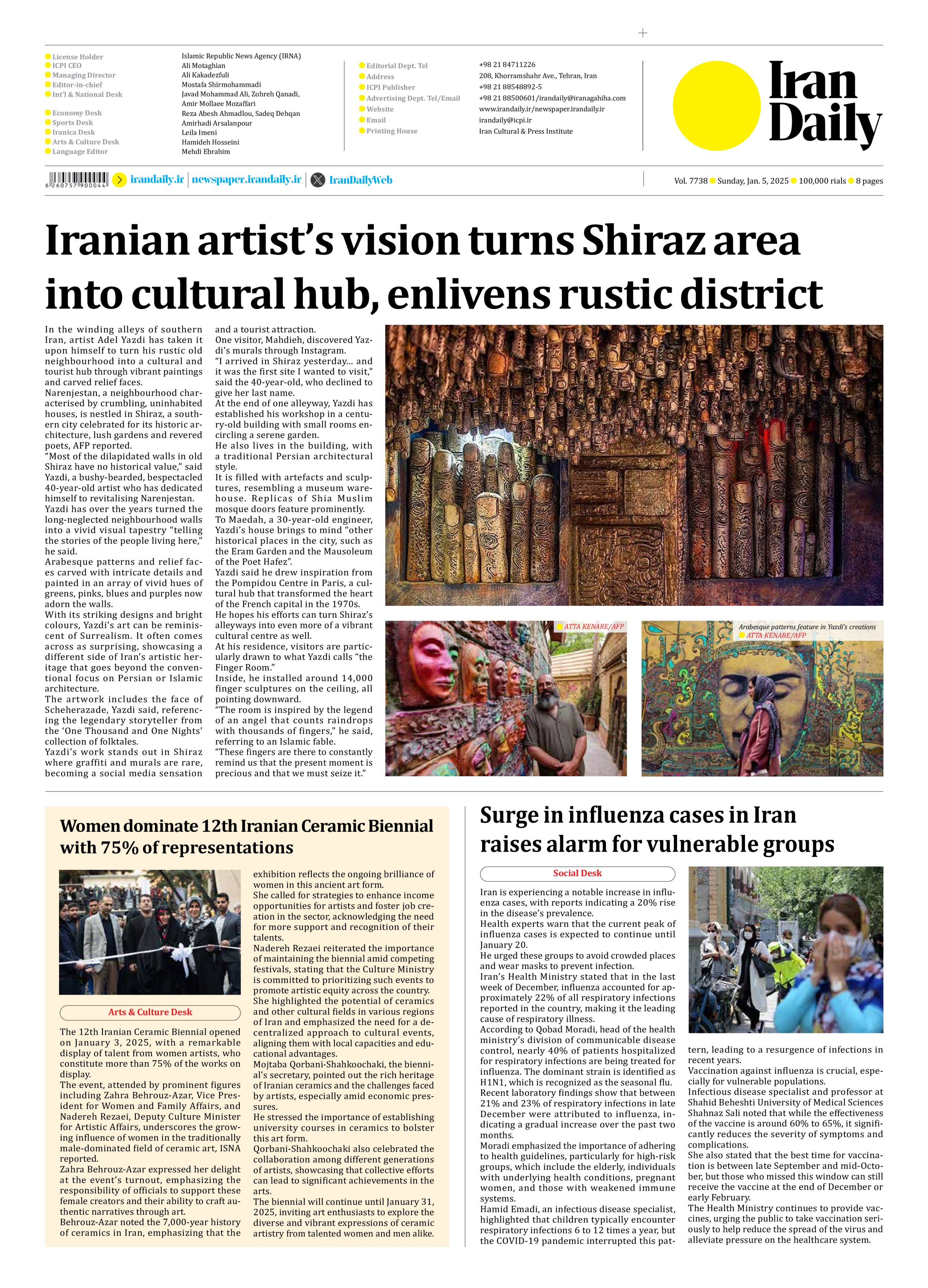
Surge in influenza cases in Iran raises alarm for vulnerable groups
Iran is experiencing a notable increase in influenza cases, with reports indicating a 20% rise in the disease’s prevalence.
Health experts warn that the current peak of influenza cases is expected to continue until January 20.
He urged these groups to avoid crowded places and wear masks to prevent infection.
Iran’s Health Ministry stated that in the last week of December, influenza accounted for approximately 22% of all respiratory infections reported in the country, making it the leading cause of respiratory illness.
According to Qobad Moradi, head of the health ministry’s division of communicable disease control, nearly 40% of patients hospitalized for respiratory infections are being treated for influenza. The dominant strain is identified as H1N1, which is recognized as the seasonal flu.
Recent laboratory findings show that between 21% and 23% of respiratory infections in late December were attributed to influenza, indicating a gradual increase over the past two months.
Moradi emphasized the importance of adhering to health guidelines, particularly for high-risk groups, which include the elderly, individuals with underlying health conditions, pregnant women, and those with weakened immune systems.
Hamid Emadi, an infectious disease specialist, highlighted that children typically encounter respiratory infections 6 to 12 times a year, but the COVID-19 pandemic interrupted this pattern, leading to a resurgence of infections in recent years.
Vaccination against influenza is crucial, especially for vulnerable populations.
Infectious disease specialist and professor at Shahid Beheshti University of Medical Sciences Shahnaz Sali noted that while the effectiveness of the vaccine is around 60% to 65%, it significantly reduces the severity of symptoms and complications.
She also stated that the best time for vaccination is between late September and mid-October, but those who missed this window can still receive the vaccine at the end of December or early February.
The Health Ministry continues to provide vaccines, urging the public to take vaccination seriously to help reduce the spread of the virus and alleviate pressure on the healthcare system.







